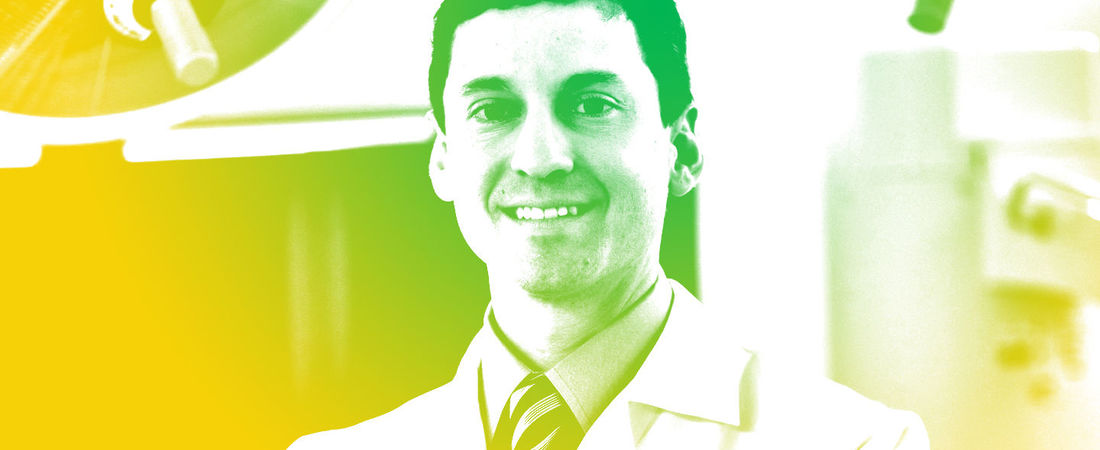Dr. Matt Butler ’02 had planned to spend his day performing previously scheduled procedures when a trauma nurse arrived with chilling news: a bridge beam had slipped and sliced off a worker’s arm above the elbow.
Butler canceled his appointments, assessed the patient, whose arm had been placed on ice, and began a rare and painstaking procedure to save the limb. When he emerged from the operating room five hours later, he had successfully reattached the man’s arm, putting him on the road to recovery.
The high-stakes surgery was another chance for Butler, a surgeon at the Hand to Shoulder Center in Appleton, Wisconsin, to make a difference in his daily work.
“There’s a lot of industry in the area,” says Butler, who performs about 700 surgeries and procedures each year. “We see bad things frequently—mangling injuries, people who put their hands in bad places—but this one was unique. It certainly stands out.”
And while the limb reattachment may have been more dramatic than most surgeries, Butler says, he regularly treats serious injuries and has completed a number of digital replantation surgeries.
“If someone runs their hand through a table saw and cuts off fingers, then it can be fairly time-intense, meticulous, painstaking work to reattach those tiny structures, including the blood vessels,” he says.
Butler also performs free flap or free tissue transfers, surgeries where he must transfer a muscle or a piece of tissue from one part of the body to another.
“The most common reason for that is if somebody has a compound leg fracture where the bone has come through the skin and there’s no skin or tissue to cover the fracture site,” he says. “We’ll frequently take a muscle from somewhere else in the body—their leg or their back—and hook it up to the blood vessels in the leg to cover that area. And I’m not a leg surgeon per se, but I’m able to do that because of the skill set that we learned in hand surgery that includes microvascular work.”
Handling more severe injuries requires both attention to detail and calmness under pressure.
“You have to learn how to control your emotions in those situations,” Butler says. “There are certain personality types that are more cut out for it, and that’s one of those things that you learn about yourself through the process of going through college and medical school. You figure out if you have that emotional component to be able to deal with those situations.
“You learn it. There’s still definitely stress involved, and the gravity of the situation is not ever lost on me when I’m in the midst of it, but your hands can’t shake if you’re working under the microscope. You have to control your breathing and your emotions to be able to block those things out.”
When he’s not handling more urgent surgeries, Butler tackles a number of routine elective procedures to treat everything from Carpal Tunnel Syndrome to torn rotator cuffs, shoulder and hand arthritis, tennis elbow, and trigger finger—a condition where a finger is stuck in a bent position.
Butler has worked in his practice, which serves as a regional hub for northeast Wisconsin, since 2012. After graduating from Notre Dame, he attended medical school at the University of Florida and spent five years at Vanderbilt University for his orthopedic surgery residency, followed by a year in Indianapolis for hand surgery training.
He draws great satisfaction from his work to help people who’ve suffered traumatic injuries, providing the expertise they need to begin the process of healing.
“It’s tremendously gratifying, and frequently you get to see immediate results from it,” Butler says. “There are people who have long-term problems where you’re seeing them over a period of time, but for the most part, I see people for a very short segment of their life. It happens to be in a time where they have something fairly dramatic going on, and you get to see them through that and see the impact.”

Leave a Reply